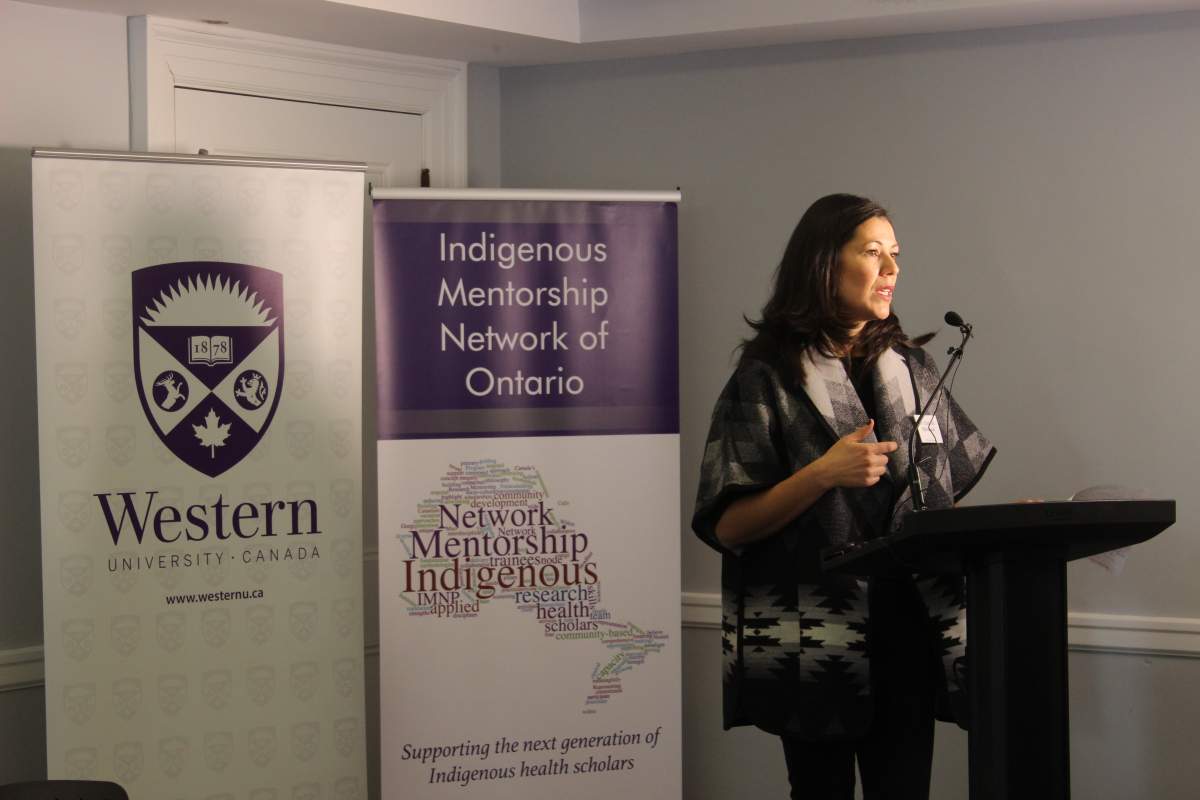Empowering Indigenous communities to take self-determining roles in health training and research is the goal of a newly-launched Ontario-wide Indigenous health network.

Western University is at the heart of the Indigenous Mentorship Network Program of Ontario, which brings together 13 research institutions and 70 researchers, trainees and community collaborators.
More than half of the network is Indigenous, that’s what makes it unique, said program leader Chantelle Richmond.
“We are investing in community-led research,” explained Richmond, who — among a number of other titles — is an Anishinaabe scholar and associate professor of geography at Western.

Get weekly health news
”We take a perspective and a position that real change will occur when we empower communities to be a part of the decision-making themselves.”
Richmond said the most important part of the network’s launch is the 17 scholarships it’s able to provide for Indigenous students in post-secondary institutions in Ontario. The Canadian Institute for Health Research (CIHR) is putting $80,000 towards the scholarships while partnering institutions are contributing a total of $180,000.
There are also up to seven seed grants available for Indigenous post-doctoral fellows and investigators, each worth $5,000, along with an undergrad workshop during February.
With a primary goal of making post-secondary institutions places where students see their Indigenous values reflected back at them, Richmond said they hope to increase the number of Indigenous people doing research and becoming leaders while creating meaningful opportunities where Indigenous communities can participate and lead research on matters they consider important.
“A fair and more equal Canada is one where communities don’t suffer from decade-long boil water advisories… where racism does not determine one’s access to health care, or to your health outcomes, and it’s a place where all children have equal opportunity at birth,” she said.
The network aligns with seven other provincial nodes of the Indigenous Mentorship Network Program, funded by the CIHR.












Comments